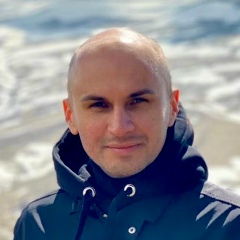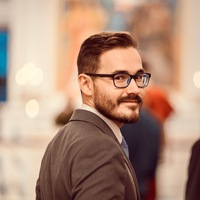"Жалко только, что попы наврали, — подумал я, — и нет у человека никакой души. А если б была душа, то посмотрела бы, какая будет жизнь. Должно быть, хорошая, очень интересная будет жизнь."
"— Федька, — сказал я ему спокойно, — а я знаю, что такое террорист. Это — которые бомбы в полицейских бросают и против богатых. А мы, Федька, какие — бедные или богатые?
— Средние, — ответил Федька, подумавши. — Чтобы очень бедные, этого тоже не сказать. У нас как отец нашел место, то каждый день обед, а по воскресеньям еще пироги мать стряпает да иной раз компот. Я беда как люблю компот! А ты любишь?
— И я люблю. Только я кисель яблочный еще больше люблю. Я тоже так думаю, что средние. Вон у Бебешиных фабрика целая. Я один раз был у ихнего Васьки. У них одной прислуги сколько и лакей! А Ваське отец живую лошадь подарил… пони называется.
— У них, конечно, все есть, — согласился Федька, — у них денег очень много. А купец Синюгин вышку над домом построил и телескоп поставил. Огро-о-омный! Как надоест ему все на земле, так и идет Синюгин на ту вышку, туда ему закуску несут, бутылку… И сидит он всю ночь да на звезды и планеты смотрит. Только недавно он на той вышке выпивку со знакомыми устроил, так, говорят, после ихнего просмотра какое-то стекло лопнуло, теперь ничего уже не видать.
— Федька! А почему же Синюгин, например, и на звезды, и на планеты, и всякое ему удовольствие, а другому — фига? Вон Сигов, который на его фабрике работает, так тому не то чтобы на планеты, а просто жрать нечего. Вчера приходил вниз к сапожнику полтинник занимать.
— Почему?.. Вот еще… почем я знаю? Ты спроси у учителя или у батюшки."
"Несколько дней подряд я был занят чтением. Помню, что из двух отобранных книг в первой я прочел только три страницы. Называлась эта наугад взятая книга — «Философия нищеты». Из этой мудреной философии я тогда ровно ничего не понял. Но зато другая книга — рассказы Степняка-Кравчинского — была мне понятна, я прочел ее до конца и перечел снова.
В тех рассказах все было наоборот. Там героями были те, которых ловила полиция, а полицейские сыщики, вместо того чтобы возбуждать обычное сочувствие, вызывали только презрение и негодование. Речь в этих книгах шла о революционерах. У революционеров были свои тайные организации, типографии. Они готовили восстания против помещиков, купцов и генералов. Полиция боролась с ними, ловила их. Тогда революционеры шли в тюрьмы и на казни, а оставшиеся в живых продолжали их дело.
Меня захватила эта книга, потому что до сих пор я не знал ничего про революционеров. И мне обидно стало, что Арзамас такой плохой город, что в нем ничего не слышно про революционеров. Воры были: у Тупиковых с чердака начисто все белье сняли; конокрады-цыгане были, даже настоящий разбойник был — Ванька Селедкин, который убил акцизного контролера, а вот революционеров-то и не было."
"— Федька, — сказал я ему спокойно, — а я знаю, что такое террорист. Это — которые бомбы в полицейских бросают и против богатых. А мы, Федька, какие — бедные или богатые?
— Средние, — ответил Федька, подумавши. — Чтобы очень бедные, этого тоже не сказать. У нас как отец нашел место, то каждый день обед, а по воскресеньям еще пироги мать стряпает да иной раз компот. Я беда как люблю компот! А ты любишь?
— И я люблю. Только я кисель яблочный еще больше люблю. Я тоже так думаю, что средние. Вон у Бебешиных фабрика целая. Я один раз был у ихнего Васьки. У них одной прислуги сколько и лакей! А Ваське отец живую лошадь подарил… пони называется.
— У них, конечно, все есть, — согласился Федька, — у них денег очень много. А купец Синюгин вышку над домом построил и телескоп поставил. Огро-о-омный! Как надоест ему все на земле, так и идет Синюгин на ту вышку, туда ему закуску несут, бутылку… И сидит он всю ночь да на звезды и планеты смотрит. Только недавно он на той вышке выпивку со знакомыми устроил, так, говорят, после ихнего просмотра какое-то стекло лопнуло, теперь ничего уже не видать.
— Федька! А почему же Синюгин, например, и на звезды, и на планеты, и всякое ему удовольствие, а другому — фига? Вон Сигов, который на его фабрике работает, так тому не то чтобы на планеты, а просто жрать нечего. Вчера приходил вниз к сапожнику полтинник занимать.
— Почему?.. Вот еще… почем я знаю? Ты спроси у учителя или у батюшки."
"Несколько дней подряд я был занят чтением. Помню, что из двух отобранных книг в первой я прочел только три страницы. Называлась эта наугад взятая книга — «Философия нищеты». Из этой мудреной философии я тогда ровно ничего не понял. Но зато другая книга — рассказы Степняка-Кравчинского — была мне понятна, я прочел ее до конца и перечел снова.
В тех рассказах все было наоборот. Там героями были те, которых ловила полиция, а полицейские сыщики, вместо того чтобы возбуждать обычное сочувствие, вызывали только презрение и негодование. Речь в этих книгах шла о революционерах. У революционеров были свои тайные организации, типографии. Они готовили восстания против помещиков, купцов и генералов. Полиция боролась с ними, ловила их. Тогда революционеры шли в тюрьмы и на казни, а оставшиеся в живых продолжали их дело.
Меня захватила эта книга, потому что до сих пор я не знал ничего про революционеров. И мне обидно стало, что Арзамас такой плохой город, что в нем ничего не слышно про революционеров. Воры были: у Тупиковых с чердака начисто все белье сняли; конокрады-цыгане были, даже настоящий разбойник был — Ванька Селедкин, который убил акцизного контролера, а вот революционеров-то и не было."
“It’s a pity that the priests lied,” I thought, “and a person doesn’t have any soul. And if there was a soul, you would see what life will be like. It must be a good, very interesting life.”
“Fedka,” I told him calmly, “but I know what a terrorist is. These are the bombs thrown at the police against the rich as well. And what about us, Fedka, the poor or the rich?
“Medium,” Fedka answered, thinking. - To the very poor, this is not to say. As a father, we found a place, every day we have lunch, and on Sundays my mother cooks pies and sometimes compote. I trouble how I like compote! Do you love?
- And I love. Only I love apple jelly even more. I also think so that the average. Look at the Bebeshins factory. I once visited their Vaska. They have one servant and a lackey! And Vaska's father gave a living horse ... a pony is called.
“They, of course, have everything,” Fedka agreed, “they have a lot of money.” And the merchant Sinyugin built a tower over the house and set up a telescope. Oh-oh-oh-oh! As he is tired of everything on earth, so Sinyugin goes to that tower, they bring him a snack, a bottle ... And he sits all night and looks at the stars and planets. Only recently he was having a drink at that tower with friends, so they say that after viewing them some glass burst, now nothing can be seen.
- Fedka! But why Sinyugin, for example, on the stars, and on the planets, and all his pleasure, and another - a fig? Won Sigov, who works at his factory, is not so much about the planets, but there is simply nothing to eat. Yesterday I came down to the shoemaker to take a fifty dollars.
“Why? .. Here's another ... how much do I know?” You ask the teacher or the priest. "
“For several days in a row I was busy reading. I remember that from the two selected books in the first I read only three pages. This randomly taken book was called“ The Philosophy of Poverty. ”I then understood absolutely nothing from this sophisticated philosophy. But then, another book - the stories of Stepnyak-Kravchinsky - I understood, I read it to the end and scanned again.
In those stories, it was the other way around. There the heroes were those who were caught by the police, and the police detectives, instead of provoking ordinary sympathy, aroused only contempt and indignation. These books were about revolutionaries. The revolutionaries had their secret organizations, printing houses. They prepared uprisings against landowners, merchants and generals. The police fought with them, caught them. Then the revolutionaries went to prisons and executions, and the survivors continued their work.
I was captured by this book, because so far I did not know anything about the revolutionaries. And it offended me that Arzamas was such a bad city that you could not hear anything about revolutionaries in it. The thieves were: the Tupikovs had completely removed all the linen from the attic; there were gypsy horse-thieves, even the real robber was - Vanka Seledkin, who killed the excise controller, but there were no revolutionaries. "
“Fedka,” I told him calmly, “but I know what a terrorist is. These are the bombs thrown at the police against the rich as well. And what about us, Fedka, the poor or the rich?
“Medium,” Fedka answered, thinking. - To the very poor, this is not to say. As a father, we found a place, every day we have lunch, and on Sundays my mother cooks pies and sometimes compote. I trouble how I like compote! Do you love?
- And I love. Only I love apple jelly even more. I also think so that the average. Look at the Bebeshins factory. I once visited their Vaska. They have one servant and a lackey! And Vaska's father gave a living horse ... a pony is called.
“They, of course, have everything,” Fedka agreed, “they have a lot of money.” And the merchant Sinyugin built a tower over the house and set up a telescope. Oh-oh-oh-oh! As he is tired of everything on earth, so Sinyugin goes to that tower, they bring him a snack, a bottle ... And he sits all night and looks at the stars and planets. Only recently he was having a drink at that tower with friends, so they say that after viewing them some glass burst, now nothing can be seen.
- Fedka! But why Sinyugin, for example, on the stars, and on the planets, and all his pleasure, and another - a fig? Won Sigov, who works at his factory, is not so much about the planets, but there is simply nothing to eat. Yesterday I came down to the shoemaker to take a fifty dollars.
“Why? .. Here's another ... how much do I know?” You ask the teacher or the priest. "
“For several days in a row I was busy reading. I remember that from the two selected books in the first I read only three pages. This randomly taken book was called“ The Philosophy of Poverty. ”I then understood absolutely nothing from this sophisticated philosophy. But then, another book - the stories of Stepnyak-Kravchinsky - I understood, I read it to the end and scanned again.
In those stories, it was the other way around. There the heroes were those who were caught by the police, and the police detectives, instead of provoking ordinary sympathy, aroused only contempt and indignation. These books were about revolutionaries. The revolutionaries had their secret organizations, printing houses. They prepared uprisings against landowners, merchants and generals. The police fought with them, caught them. Then the revolutionaries went to prisons and executions, and the survivors continued their work.
I was captured by this book, because so far I did not know anything about the revolutionaries. And it offended me that Arzamas was such a bad city that you could not hear anything about revolutionaries in it. The thieves were: the Tupikovs had completely removed all the linen from the attic; there were gypsy horse-thieves, even the real robber was - Vanka Seledkin, who killed the excise controller, but there were no revolutionaries. "

У записи 8 лайков,
0 репостов,
162 просмотров.
0 репостов,
162 просмотров.
Эту запись оставил(а) на своей стене Илья Измайлов




























